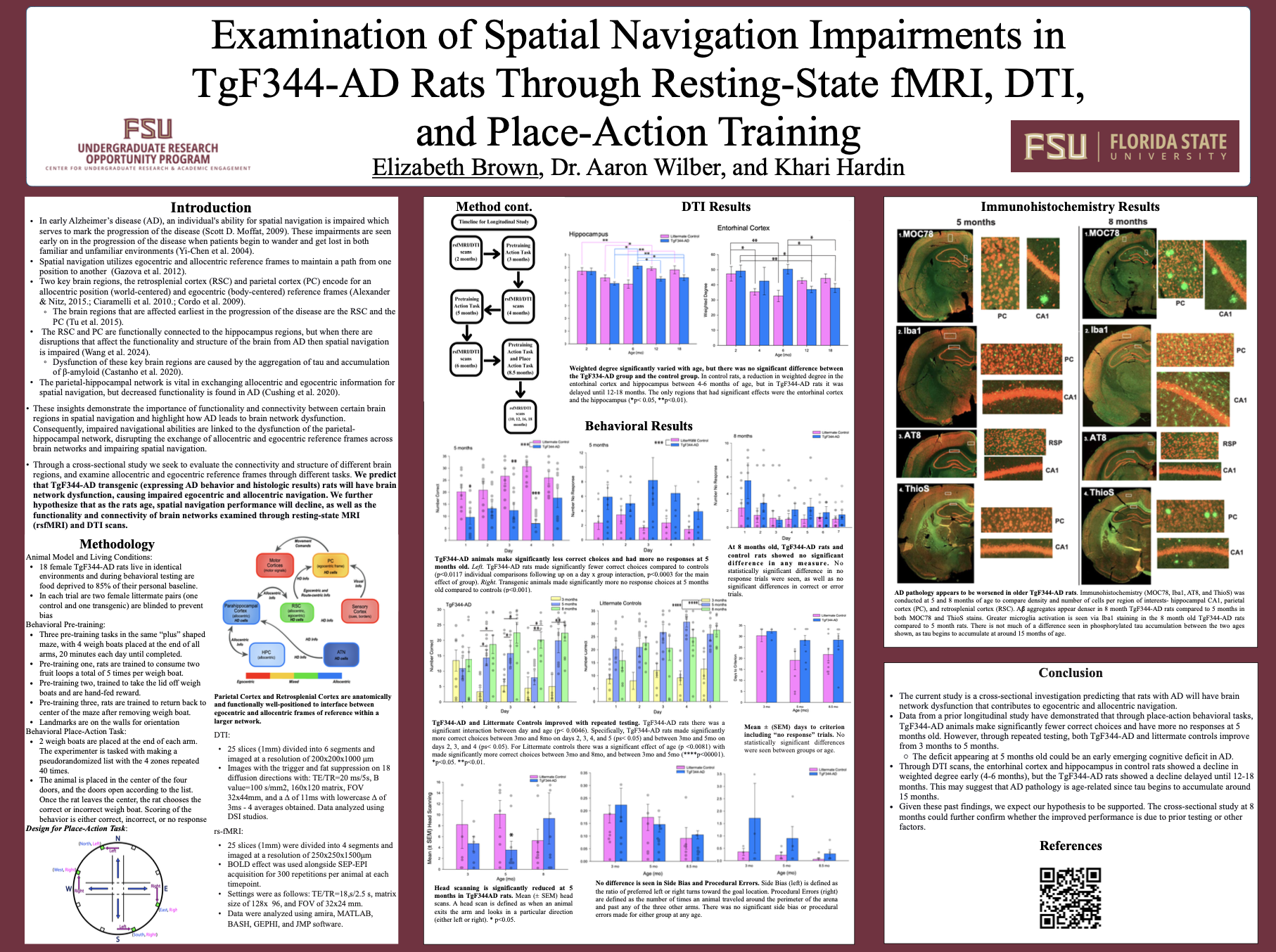Research Symposium
25th annual Undergraduate Research Symposium, April 1, 2025
Elizabeth Brown Poster Session 1: 9:30 am - 10:30 am/ Poster #98

BIO
My name is Elizabeth Brown, I'm from Jacksonville, Florida. I am second-year undergraduate here at Florida State University, majoring in Behavioral Neuroscience. I plan to attend graduate school to pursue a degree in Clinical Neuropsychology. My research interests focus on Alzheimer's disease and other neurodegenerative diseases.
Examination of Spatial Navigation Impairments in TgF344-AD Rats Through Resting-State fMRI, DTI, and Place-Action Training
Authors: Elizabeth Brown, Dr. Aaron WilberStudent Major: Behavioral Neuroscience
Mentor: Dr. Aaron Wilber
Mentor's Department: Psychology Mentor's College: College of Arts and Sciences Co-Presenters:
Abstract
Alzheimer's disease (AD) is a disease that progressively impairs spatial navigation abilities with early symptoms including disorientation and wandering. Since difficulty navigating is among the earliest signs of AD, it is vital to understand how brain network dysfunction contributes to impairments of egocentric and allocentric navigation. In particular, understanding the connection between key brain regions, especially the parietal and retrosplenial cortex, can provide insight into how AD impacts navigational abilities. To examine the progression of the disease, two female littermate pairs TgF344-AD rats underwent three pre-trainings and a place-action task in a ''plus'' shaped maze to evaluate their navigational abilities. After testing, behavioral data, histology, and cell counting are analyzed to examine the brain structure and disease impact, comparing blinded animals to counterparts. During specific time points in the rats' trials, the rats undergo resting-state functional MRI (rsfMRI) and DTI scans at the National High Magnetic Field Laboratory to correlate with their pathology. The expected results are predicted to support the hypothesis that AD rats will have progressed brain network dysfunction, causing impaired egocentric and allocentric navigation. Previous longitudinal results demonstrated that as the rats age, control animals maintain stable performance with few impairments, but AD rats will either fail to respond to tasks or show worsening performance. Additionally, the study indicates that older AD rats will have a greater accumulation of tau and β-amyloid than control rats. The expected results suggest as AD progresses, age-related brain network dysfunction impairs spatial navigation, highlighting the importance of studying the disease's progression.
Keywords: Alzheimer's disease, spatial navigation

